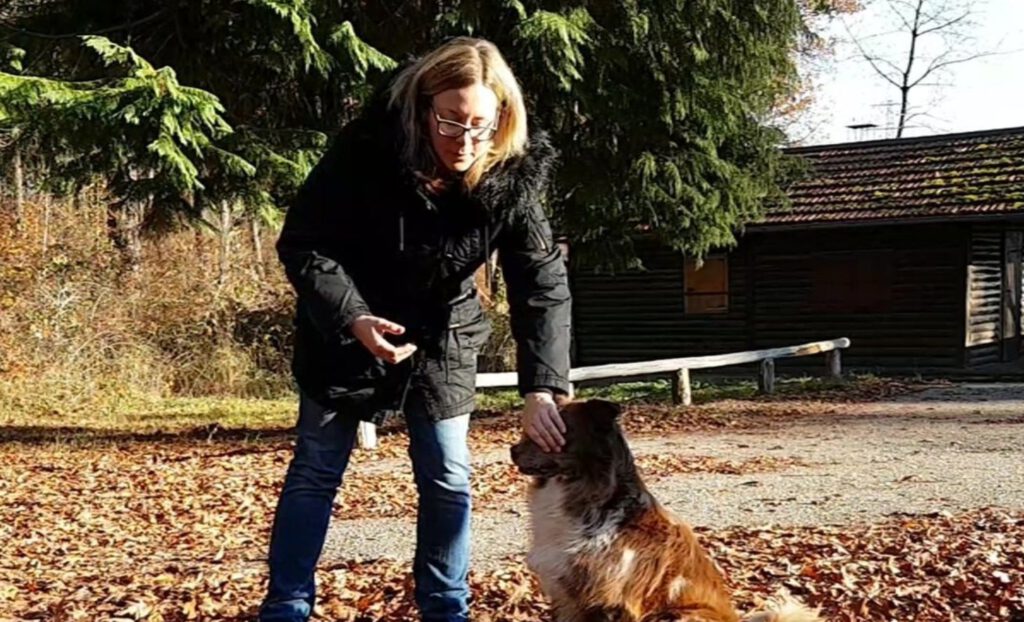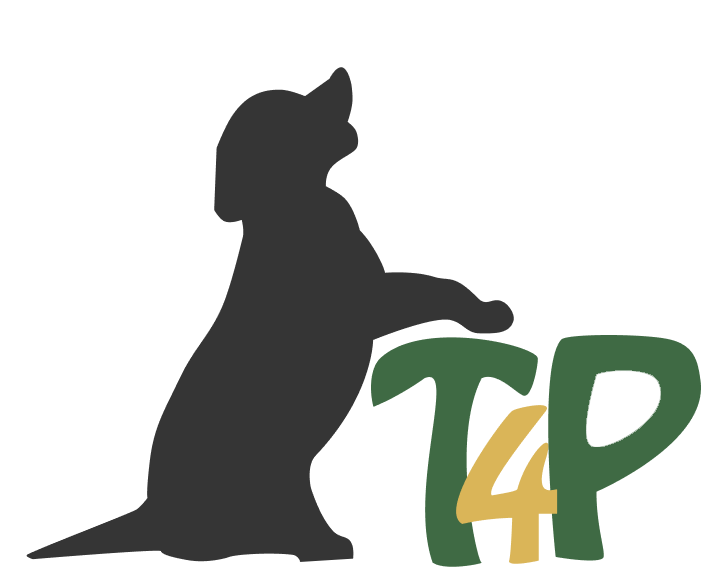Orienting towards sounds
The Games Dog People Play - in Germany
Hunt for sounds together with your dog by teaching him to have his eyes shut

Hunting makes dogs happy!
Orientation - The first sequence of Hunting Behaviour
"Blind Search" - a Hunting Game
"Eyes shut" - A Test of Courage and a Vote of Confidence
Informational Cue "Eyes Shut" - The Protocol
The important thing is that you do not simply overpower the dog, but instead announce the covering of the eyes beforehand. Nanook’s informational cue is “eyes shut”. Then I give him a second to adjust to what’s coming before I hold my hand up.
In the next step, it’s important NOT to put your hand on the dog, but to lure the dog into your hand with a treat. Give him the treat and then take your hand away from his eyes.
If you’ve repeated this so often that your dog knows what it’s all about, you can skip the treats and wait to see if your dog moves towards your hand by himself. You mark and reward this movement as long as the eyes are still covered. When your dog has eaten his treat, you take the hand away.
- Info cue: “Eyes shut” – wait 1 second – hand moves to eye level of the dog (NOT towards the dog!) – dog moves his face towards the hand – eyes are covered – mark and treat – hand releases the eyes
If your dog reliably presses his eyes into your palm, then you can extend the time by delaying the marker signal.
A wonderful way to increase duration as taught by my Scottish colleague Claire Staines from Lothlorien Dog Services, is the method 300 Peck.
Now it’s time for the actual game: give your dog his info cue that you’re about to cover his eyes, throw a treat into fallen leaves or dry grass so that he has to orientate himself towards the sound of the fallen treat and let him search for it.
It's just a Game!
Cooperative Hunting makes you both a team!
Through Cooperative Hunting you have the opportunity to work your dog physically and mentally on his daily walks in a way that meets his canine needs. If your dog is allowed to excercise individual sequences of predation in a save environment, then he no longer has the strong need for solo hunting adventures and he can be better controlled in critical situations.
Through the joint activity that is highly rewarding and satisfying for your dog, he also links all the positive feelings with you. Instead of being the annoying factor that spoils the fun, you’re now the one who enables him to succeed in hunting. This has a positive effect on your relationship.
